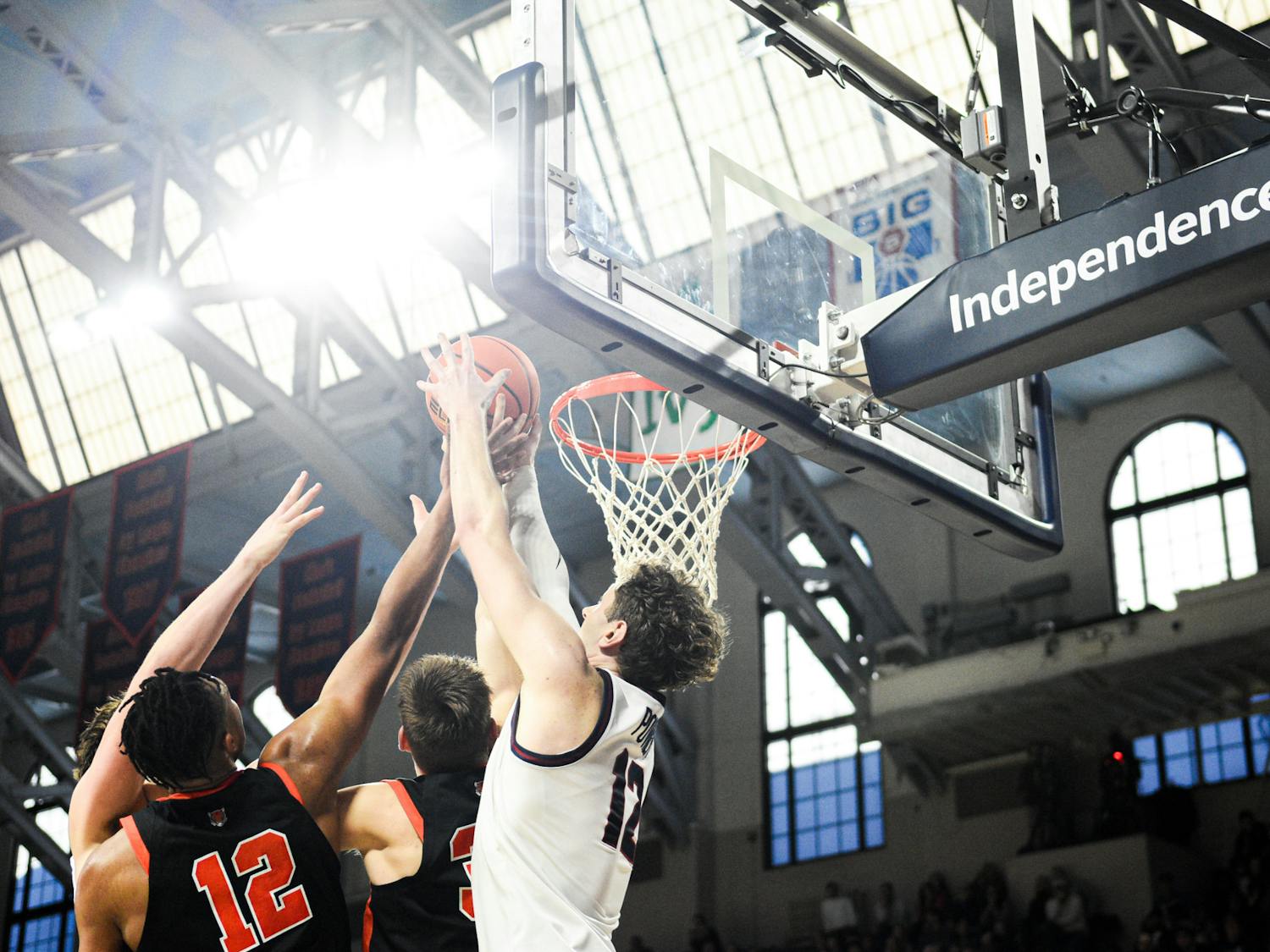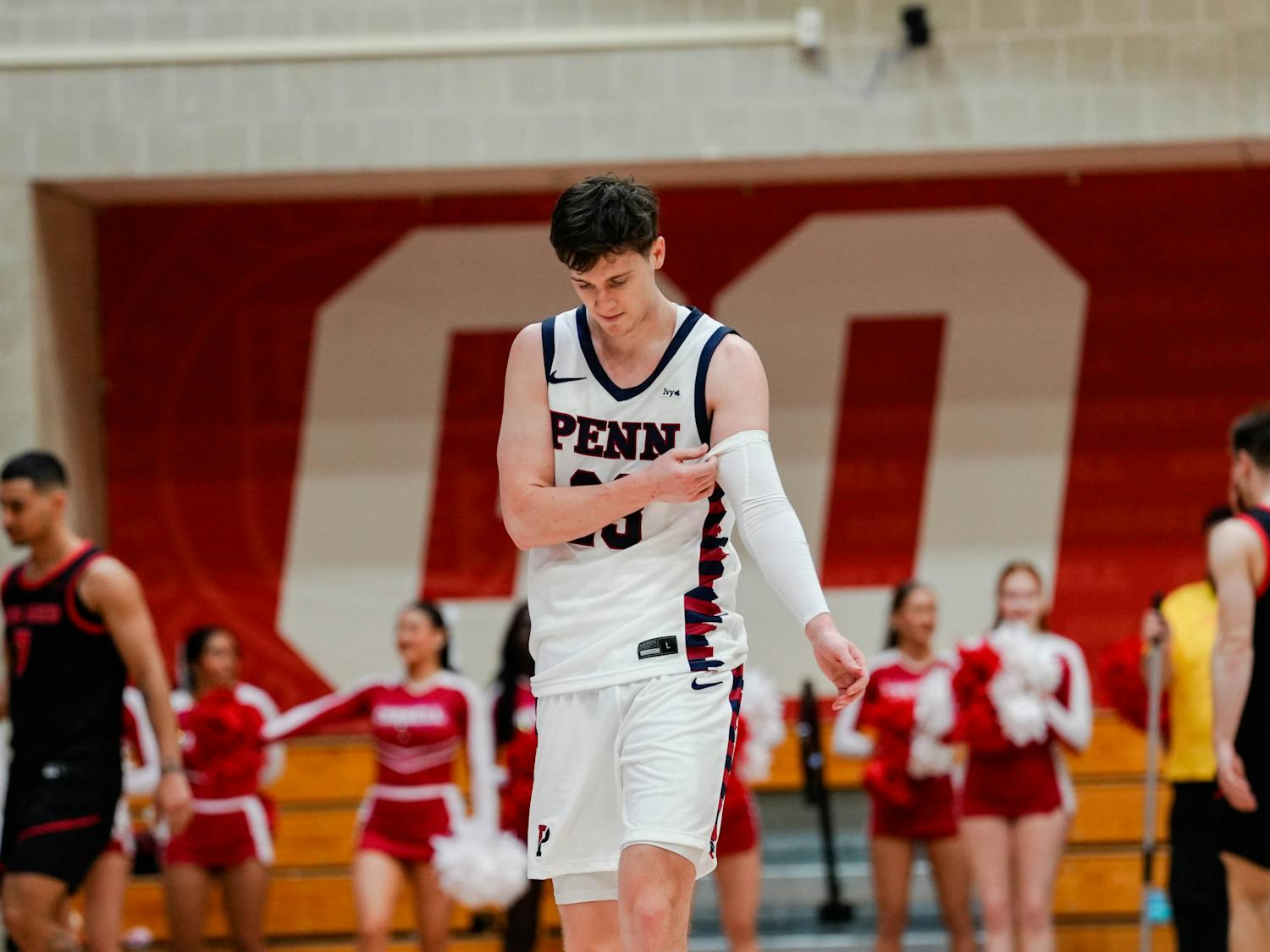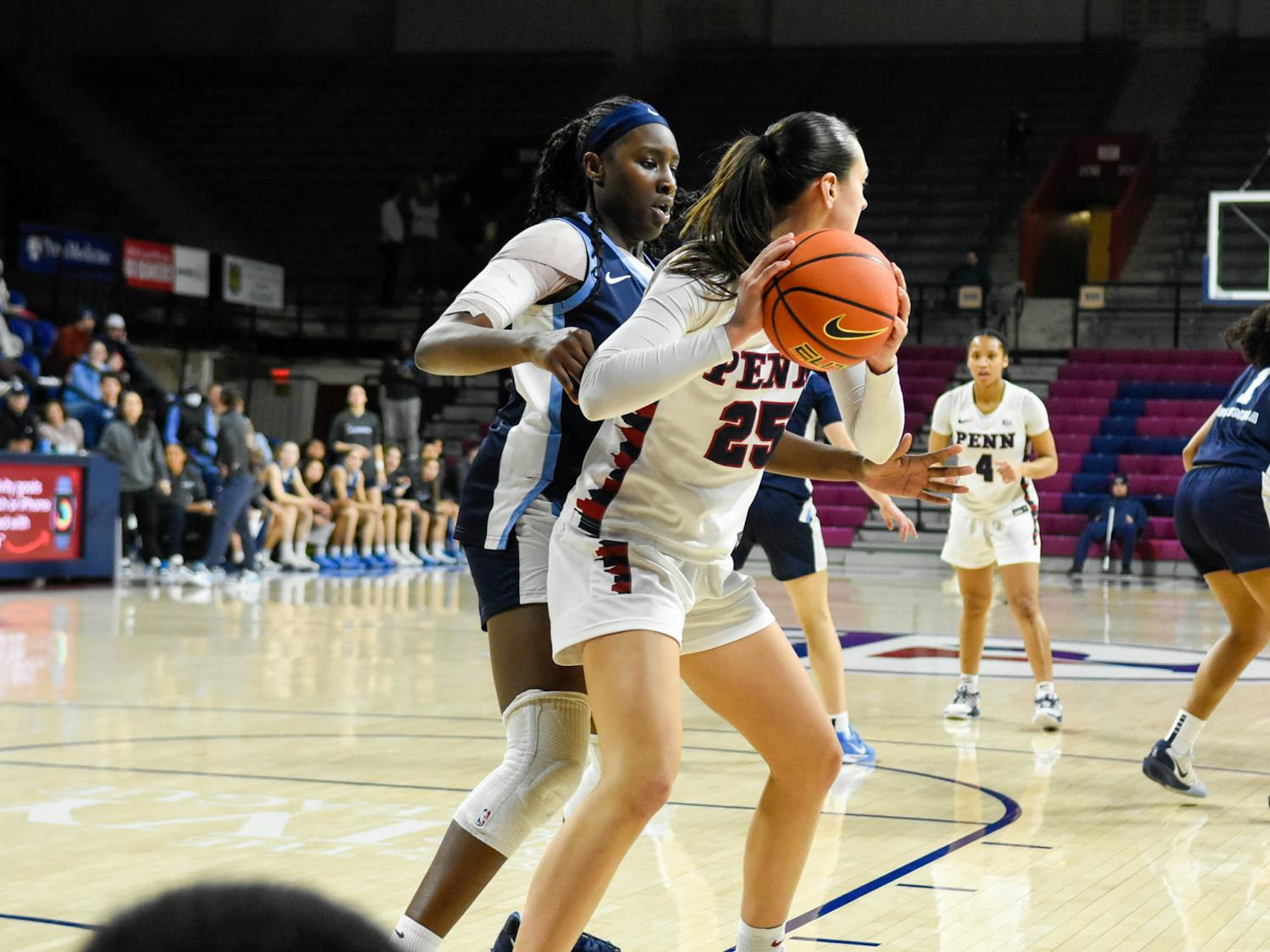Among the names in the tide of newcomers to the Penn sports coaching staff is Krissy Turner, who is bringing her extensive resume of habitual wins to a team of exciting potential in Penn women’s soccer.
Turner left her post of 24 years as the head coach of Monmouth women's soccer to join the Penn program. Through just the past five years alone, Monmouth totaled a number of losses you could count on just two hands. In the rest of those games, Turner's leadership built teams consistent in dominance and powerfully persistent to the final whistle.
With a degree in elementary education and a Ph.D. in psychology, Turner is bringing new approaches to elevate Penn women's soccer — which welcomes its third coach in just four years — while also expanding the levels of excellence the program pursues.
First, how has it been so far with Penn women’s soccer through the past several weeks?
“Everything's been fantastic.”
“For all the players in the senior class, I'm the third coach that they've had in their careers at Penn, and so obviously there's been a lot of change and transition. And I think they have embraced and been resilient through this change and the transition, and they've been amazing. Their work ethic is fantastic — their desire to learn, to challenge themselves, to embrace new ideas — it's been phenomenal. Overall, I think they have a great sense of pride within the program, and they want to win.”
Turner understands how to win with a great team. She has been named conference coach of the year nine times, and claimed 21 winning seasons out of her 24 years with Monmouth. Her expertise in consistency and excellence both on and off the field has proven results for a formidable two decades of Monmouth in the Metro Atlantic Athletic Conference, and will be crucial to building a robust team to command the Ivy League.
How much have you been adapting yourself to the existing philosophies within Penn soccer, and how much of your own new ideas from your past experiences have you brought to the table?
“I think that was part of the reason for me, aspiring for a new opportunity, was to challenge myself. Certainly from my point of view, I've had to adapt and welcome the thoughts of the leadership from within the team, and be willing to embrace what's important to them, while at the same time having them understand why I might want to do something differently from my experience and my tradition of excellence that I bring with me based on the success that I have had in my career. I think there's been a lot of give and take from both sides, and I think we both understand that that's what's important in a relationship. With that, I think communication is super important. So being able to appreciate each other's opinions, attitudes, and beliefs, and respecting those, while at the same time the players are doing the same for me.”
Penn punctuated its conclusion to last season with a semicolon, with unfulfilled goals aimed toward collecting the last few details necessary for an Ivy League Champion team.
In 2021, the Quakers shook guests at Rhodes Field as they claimed six clean sheets in nine home wins. Penn only spilled its undefeated home record in the season finale against Princeton, falling trap to late-year troubles in conference matches.
But Penn’s losses, especially in the Ivy League, pointed toward those paper-thin margins that set apart a championship team from others.
You have much experience winning, and winning consistently. What does it take to become league champions, and how much of that do you currently see in Penn?
“In order to win, I think you have to have a very high work ethic. I think you have to have a strong and determined mindset. I think you have to play with confidence. And I think you have to be able to focus on doing the little things right.”
“The little things that add up to be big things, and in a moment in a game, or when maybe you're faced with adversity — focusing on the little things that got us to the big moments, I think is very, very important. And I think the players are understanding how detail-oriented the new staff is, and I think there have been moments when we've been able to show them that those details make a difference between finishing off the play or not finishing off the play.”
Penn has drawn against both of its opponents so far — first 0-0 against Temple, and 1-1 against Maryland — but the signs left on the field point toward the potential of what the team can achieve.
The Quakers posted 14 shots, six shots on goal, and 11 corners against Temple despite the final score listing a 0-0 result. Efficiency and precision in converting these chances are areas of improvement that Turner is well aware of, which leaves anticipation in the potential of the current team as the season unwraps.
You mentioned that the little things add up toward the final points that really matter for the result of the game. In our opening match against Temple, Penn held the upper hand in several numbers such as shots, shots on goal, and corners. What are those key deciding factors that you find in the best athletes on the field when it comes to converting all these opportunities in the final third?
"One of the things that I think matters is us having the opportunity to be together for a little bit longer, so that we can build chemistry on the field. I think that the players need to make sure that they come with a sense of belief in themselves and an air of confidence; that when they are in front of goal, they believe it's gonna go in."
"And then focusing on those small details where maybe against Temple, maybe we took the shot a little bit early in the play when maybe we could have, you know, taken a few more dribbles to set ourselves up for success in front of goal, as one example. So I think it comes down to execution, but at times, you know, the game is just about desire and just wanting it just a little bit more than the other team."
While Turner’s first two results with the Quakers were each a draw, her first game guarding the sideline uncovered much to look forward to.
Winning is always the ultimate goal, but clean sheets serve important proof of the defense’s ability to persist through 90 minutes of play. Both Turner and Penn have always been keen on conceding no goals, even in victory.
“In the first game against Temple, I think we walked away knowing that maybe we left a more positive result on the field, because we had created so many positive opportunities to score. We certainly generated a lot of attack, but most of that was done in the first half.”
“One of the things we talked about going into Maryland was being a 90-minute team and not just being a first-half team. And that's something I think we have to continue to try to build on, is building a deeper fitness base, so we're sharp in the beginning as we are at the end.”
“Maryland was a different type of opponent because they were extremely athletic. So I think, you know, in that game, there weren't as many chances for either team. In the first half, we only had one shot and that went in. It was a great shot. So we'll take that. But I think we need to be a little bit more patient in our attacks so that we can create good chances against teams that are maybe as athletic as us, or even more athletic.”
Penn will be on the road to play Villanova on Sept. 1, a chance to take notes from the team's first two games and prove some results in the Quakers' first time on the road this season.









